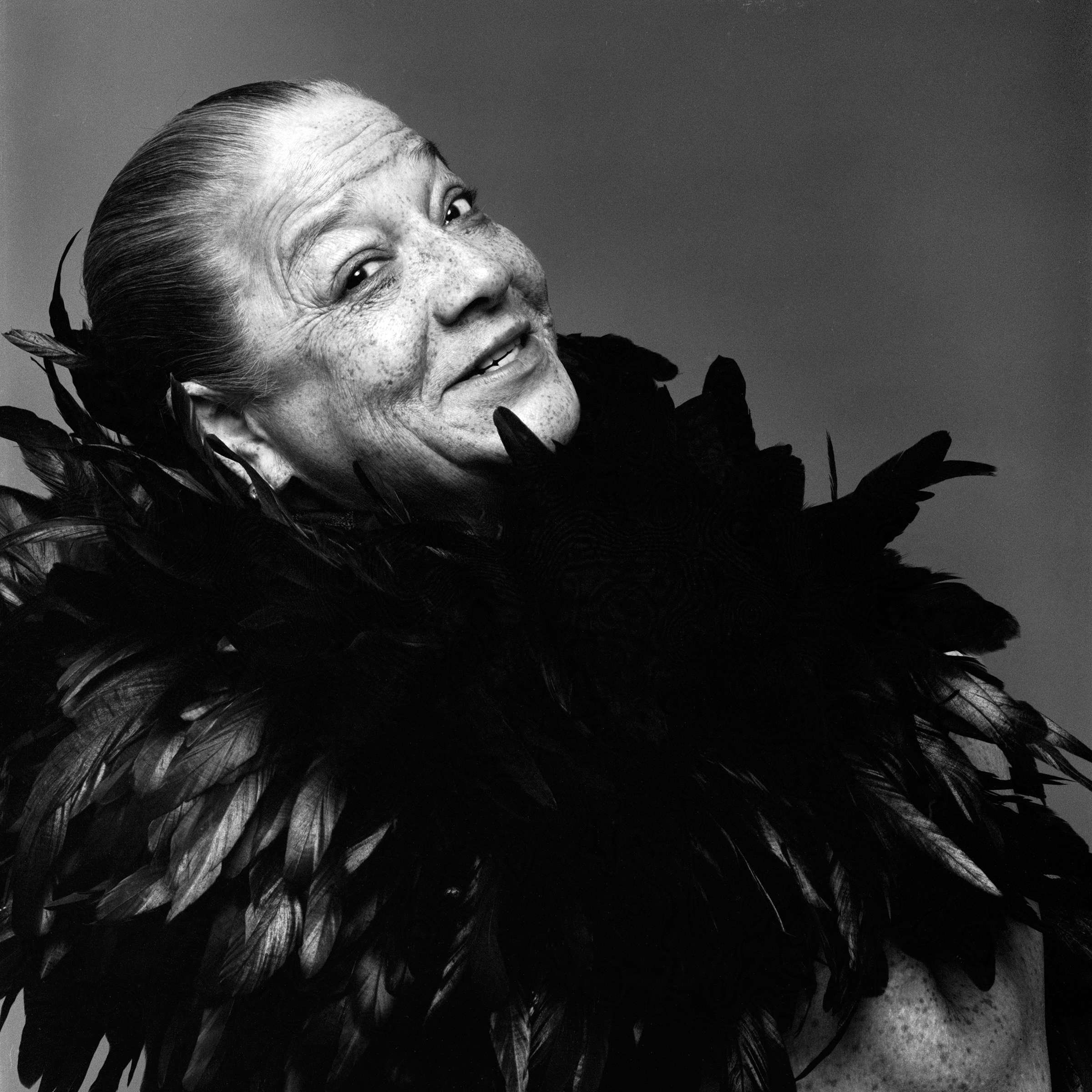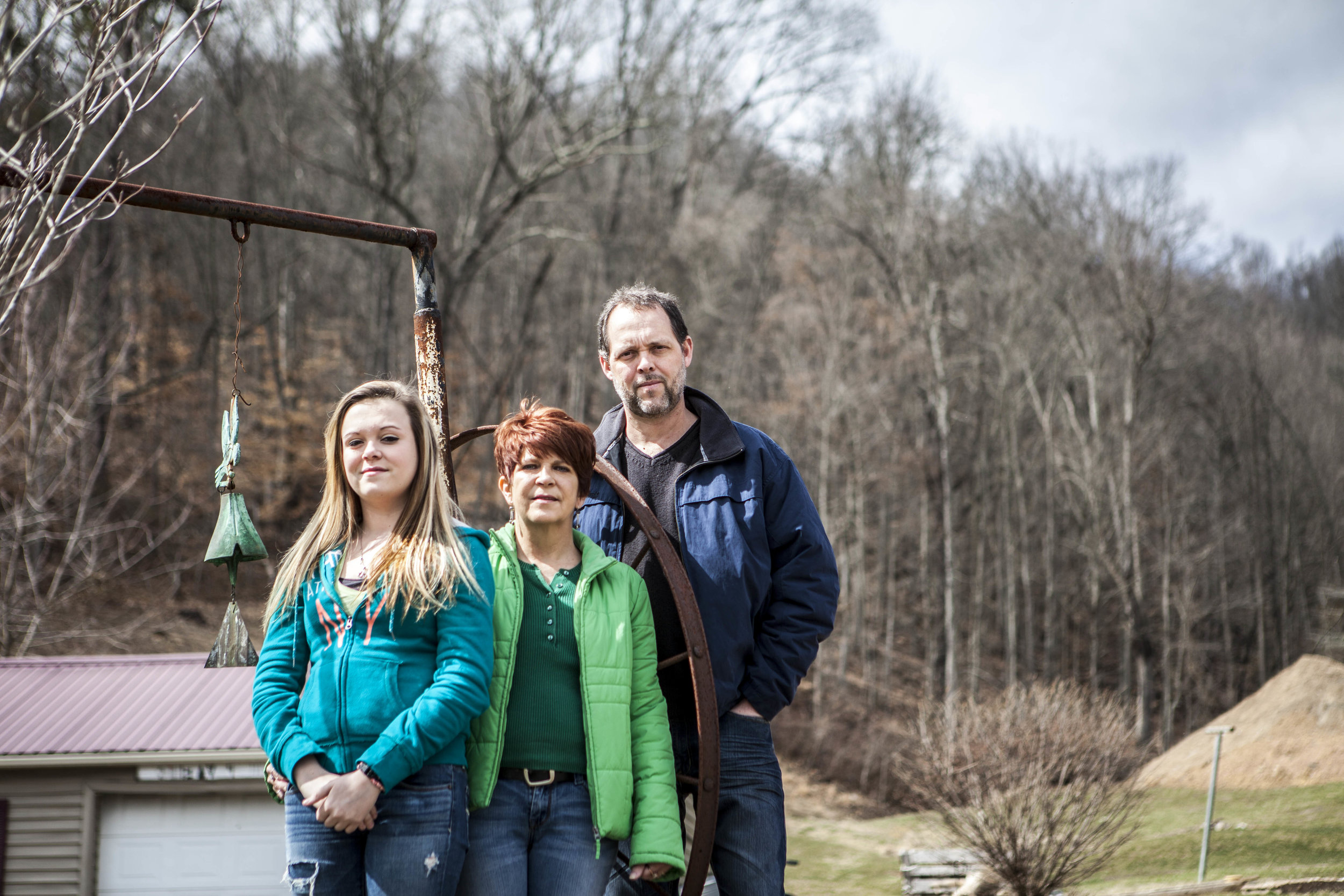Irish Mike

By Greg Johnson
Is there anyone on the planet who hasn’t heard “Bad to the Bone?” Used in countless movies from The Terminator 2 to Problem Child, the 1982 rock anthem by George Thorogood & the Destroyers is just one of those songs that sticks in your head and seems destined to last forever. A sporting-events staple, you’re likely to hear it when a batter steps up to the plate or a wrestler enters the ring. Even Alvin and the Chipmunks recorded a version.
It might surprise some Greenbrier countians to learn that for the past few decades George Thorogood’s manager has been quietly living in the hills outside Alderson in a log cabin he designed and built. Surrounded by recording equipment and his guitar collection, Mike Donahue has retreated from road shows and rock arenas and is living a less frenzied, off-the-grid life, playing around with his own recording projects, collecting vintage instruments and, occasionally, traveling.
He doesn’t boast about his career, but if you press him to name some of the legendary musicians he’s met, the list is impressive: Bob Dylan, Janice Joplin, Johnny Cash, Willie Nelson, Neil Young, Joe Cocker, Van Morrison, the Allman Brothers, Steve Miller, and blues artists like B.B King, Buddy Guy, John Lee Hooker and Eddie Shaw. He’s got plenty of tales to tell and an Irishman’s gift of gab when it comes to telling them.
He explains that the real George Thorogood is nothing like the song’s badass, who brags about making rich women beg and good women steal. When they first met, the aspiring young musician’s passion was baseball. “George was a jock,” Donahue remembers. “He was playing baseball four times a week. I started playing with George and his friends, and he told me I needed a nickname they could use when I stepped up to the plate. He started calling me Irish.” The name stuck. He still uses it on his Facebook page.
Mike Donahue is probably one of the only people who can tell you where the inspiration for “Bad to the Bone” came from. Thorogood wrote it after a conversation with The Rolling Stones’ Keith Richards, who told him he needed a hit with a catchy hook. He retired to his hotel room, and a few hours later he emerged with the song, which harkens back to old blues standards like Willie Dixon’s “Hoochie Coochie Man” and Muddy Waters’ “Mannish Boy.”
A lifetime ago Mike Donahue was a working-class kid growing up in Teaneck, New Jersey, the son of a building contractor. They lived across the Hudson River from Manhattan, and the sounds coming from the radio stations in New York City kindled the young Catholic schoolboy’s imagination. “I used to go to Murray the K shows at the Brooklyn Fox Theatre,” he says. “Those shows made me want to learn to play the guitar.”
To his parents’ chagrin, he was more interested in music than in his schoolwork. “My dad wasn’t happy about it,” he recalls. “He was old-school Irish. He thought musicians were just bums who couldn’t get a real job. But I was obsessed, and I was going to follow my interest whether my parents liked it or not. Once they realized that, they came around and were supportive.”
“Coming out of 8th grade I had to take a test to get into the all-boys Catholic high school. I purposely bombed the test because I wanted to go to public school, where there were girls. I had the worst test results in the school’s history. So my dad called my uncle, who was a priest at a Catholic high school for boys in Wilmington, Delaware. I got exiled to Delaware. When I got there the first thing I did was start a band, The Outcasts. I had a working band when I was 14. We played other high schools and parties and proms. We played in gyms that had the worst sound you can imagine. I had a Harmony Rocket guitar and I played rhythm and sang.”
He counts his sister’s husband as his earliest supporter. “Chuck was originally from Fairmont, West Virginia, and he loved country music. He had a station wagon, and he would haul us around to our gigs. He’d lend me money when needed. He’d take me record-shopping. I learned a lot about country music from Chuck. He was a big Mountaineers fan, and that was the first I’d heard of West Virginia.”
When he finished high school he enrolled in the University of Delaware. “I was going to school and working as a carpenter—my father had seen to it that I had some kind of useful skill. A friend and I worked out a deal where we could fix up an old house on a farm. All our musician friends started hanging out there. We converted one of the barns so we could play music in it, and we had endless jam sessions on the weekends for the next couple of years. The local musicians would come and hang out. I met George Thorogood standing in line at the Fillmore East, and I invited him to come out to the farm and jam with us. That’s how it started.”
His university experience was short-lived. He lasted three semesters because he was playing music into the wee hours and college classes didn’t seem to fit into his schedule. He managed to complete a carpenter apprentice program, and he became a union carpenter, mostly to support his music habit.
“When I came to West Virginia in 1974 I started to look for work and was sent out to the R.D. Bailey Dam as a master carpenter. I had friends from Newark who were doing the ‘counter-culture’ thing in Sandstone, in Summers County. At one point we counted 60 people we knew who had moved from Newark to West Virginia. Some stayed, and some moved on. I met my ex-wife playing music at a square dance, and we became inseparable. We got married in ‘76 and had two kids. I was trying to juggle marriage and fatherhood with carpentry and music.”
His wife’s family was into horse breeding, and they bought some property in Greenbrier County in 1979. He used his carpentry skills to build a log home. Several years later the work slowed down, they were struggling financially, and he needed to pay bills. He returned to Delaware to work on building a hospital. Eventually, the relationship ended, and his wife and kids stayed on the farm. The kids went to school in Alderson until the divorce, and his wife remarried and moved to Georgia.
Donahue then linked up with his old friends in Delaware and learned that Thorogood had just signed a recording contract with a major label. By this time they had a 10-year relationship, and the rising star trusted his friend. He wasn’t satisfied with his new management team, and he offered Mike the chance to come on board to help smooth things out. “George was technically ‘self-managed.’ I became his advance man and his publicist, but we didn’t have words for those things back then. I thought the deal with George would last a year, maybe two. I didn’t want to work as a carpenter if I could work in music, but I wasn’t really expecting it to turn into a career.”
He became the full-time manager for George Thorogood and the Destroyers. “We made a handshake agreement, and I thought it would last only a year or two. I ended up managing the band for the next 30 years of my life.”
A blues aficionado, Mike considers one of the highlights of his life the opportunity to work with legendary blues artists. He worked with a group who helped develop new income streams for the old musicians by reinventing their songs for rock audiences. His work resulted in an invitation to serve on the board of The Blues Foundation in Memphis.
From his home-base in Alderson he stays in touch with Thorogood, and he occasionally catches his old friend’s shows. He’s putting the finishing touches on his own album, Still Kickin’, in the recording studio he built at home in 2014. His studio band (The Dime a Dance Band) is made up of local musicians he’s been playing with for many years: bass player Don Drummer, lead guitarist Randy Goodson, percussionist Butch White, keyboardist Zemph Sapanski, and Buddy Leach from The Destroyers. He explains that the Dime a Dance project is to honor some of his musician friends who have passed on and to get some decent recordings with players who are “still kickin’”.
Retired from the days when he was touring 80-plus shows a year in multiple countries, he has time to pursue his interests. He makes leisurely treks around the country to add instruments to his collection, and from time to time he hops across the pond to roam around Ireland, finding interesting places to stay by chatting it up with the locals in pubs. When he’s not recording or wandering, he enjoys spending time with his children and grandchildren in Virginia.
It’s been a long road for a music-obsessed kid from New Jersey, but all in all, Mike Donahue has done okay. Call it the luck of the Irish.




